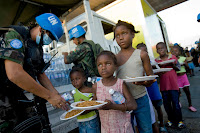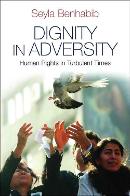08.10.2013
Philosophy outside campus: Jonas Jakobsen discussing secularism and Christianity in the Klassekampen Newspaper of this Saturday.
I Klassekampen 28. september kritiserer Kjell A. Nyhus og Ole Jacob Nyhus, forfattere av «Kristen tro – oppdatert», sine medborgere for manglende viten om kristendommen. Fordommer, ignoranse og karikaturer blokkerer for «reell kunnskap om kristen tro», hevder de. Når denne kunnskapen forsvinner, da forsvinner også begreper som «mening», «ånd», og «hellighet» ut av menneskelivet, og vi har ikke lenger noe å si «om det å være menneske».
Det er riktig at ukritisk formidling av det kristne budskapet ikke (lenger) er en prioritet for de fleste journalister, lærere, politikere og så videre i vår del av verden. Men det er...
Read the full text here.
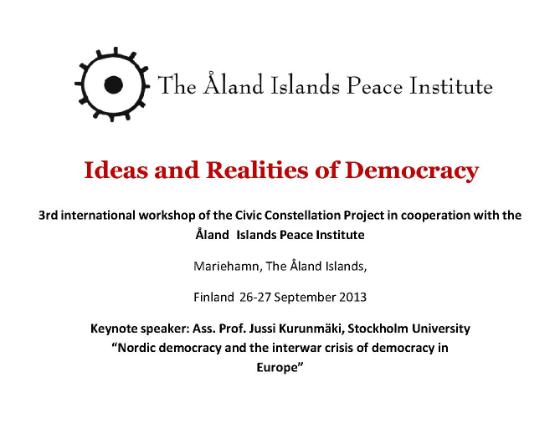
The PDJ members, Jan Harald Alnes, Roar Anfinsen, Tor Ivar Hanstad, and Jonas Jakobsen participated at the 3rd International Workshop of the Civic Constellation Project on Ideas and Realities of Democracy. The Workshop was held at the Åland Islands Peace Institute from the 26 to 27 September 2013.
For more information, please, check the program below.
Program
Thursday, 26thSeptember 9.00 Welcome /the convenors9.10-10.45 Multilevel Governance, globalization and national constitutionsChair: Sia Spiliopoulou Åkermark Marta Postigo: "Debating the Democratisation of the European Union: Some reflections on post-national democracy" Carl Lebeck "Protecting national democracy through supranational law: a paradox of EU-law?" Geneviève Souillac "Territorial citizenship in cosmopolitan democracy" (title tbc) 10.45-11.15 Coffee 11.15 – 13.00 Pluralism and Democracy Chair: José Maria Rosales Jan Harald Alnes "Civic education and the reasonable religious citizen" Thaddeus Ndukwe "At the crossroads between multiculturalism and conservatism in Finland: experiences of African immigrants in Helsinki region" Violetta Khabibulina "Medicalisation of national security in relation to labor migrants in Russia" Jonas Jakobsen "Secular reason in the Post-Secular Society: Revisiting Habermas and his Critics" 13.00 – 14.00 Lunch 14.00 – 15.15 Democracy, human rights and human dignity Chair: Marta Postigo Manuel Toscano "Human Dignity and Human Rights: Better Apart? Christophe Barbey "The links between peace, democracy and human rights" Heidi Öst "Identities in flux – Åland and South Tyrol compared" 15.15-15.30 Coffee/tea 15.30 – 17.00 Democracy in theory and practice Chair: Kari Palonen Anthoula Malkopoulou "The paradox of democratic selection: is lottery better than voting?" Jennifer Eagleton "Rhetorical Ambiguity, Democracy and Political Change" Rosario López "Victorian ‘advanced’ liberalism and the reform of political institutions" 17.30-18.30 Keynote Speech 'Nordic democracy and the interwar crisis of democracy in Europe' By Associate Professor Jussi Kurunmäki, Stockholm University(Open for general public) Friday 27th September9.00-11.00 Ideas and Ideals of DemocracyChair: Manuel Toscano Tor Ivar Hanstad "On Democracy and Nihilism – two sides of the same coin?" Paloma García Díaz "Assessing human enhancement ethical discourses from the point of view of the democratization of science and technology" Samuel Hayat "Inclusive representation" Sia Spiliopoulou Åkermark "Participation as a substitute for parliamentary democracy?" 11.00-11.30 Coffee 11.30-13.30 Philosophical Debates on DemocracyChair: Jan Harald Alnes Roar Anfinsen "Nature, politics and ethics. A discussion of Aristotle’s naturalism" Anat Ascher "Direct Democracy: between oppression and ultimate liberation" Robert Martin "Between Rosanvallon and Rancière: Toward a Theory of Dissentient Democracy" José María Rosales "Recasting Democracy’s Discontents: a modest proposal" 13.30-14.30 Lunch and closing words, Professor Kari Palonen [15.00-17.00 Internal Working meeting of the Civil Constellation Network] The Civic Constellation Project (FFI2011-23388)
Welcome to the new PDJ member
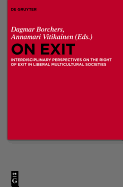 The PDJ Research Group wishes to welcome and to congratulate the new post-doc researcher, Annamari Vitikainen. Annamari Vitikainen is a postdoctoral researcher in political philosophy at the Department of Philosophy, University of Tromsø. She defended her doctoral thesis “Limits of Liberal Multiculturalism” at the University of Helsinki 2013. Vitikainen has also worked as a research associate at the Institute of Philosophy, University of Bremen (2011-2012) and as a visiting scholar at the Centre for Applied Philosophy and Public Ethics, Australian National University (2008). Vitikainen’s research interests include liberalism, multiculturalism, theories of justice (incl. social, global, and gender justice), cosmopolitanism, nationalism, philosophy of law, and feminism. Recent publications include “Liberal Multiculturalism, Group Membership, and Distribution of Cultural Policies”, Ethnicities 9:1 (2009) and “Exit, Identity, and Membership”, in: Borchers and Vitikainen (eds.): On Exit: Interdisciplinary perspectives on the right of exit in liberal multicultural societies. Berlin and Boston: De Gruyter (2012).
The PDJ Research Group wishes to welcome and to congratulate the new post-doc researcher, Annamari Vitikainen. Annamari Vitikainen is a postdoctoral researcher in political philosophy at the Department of Philosophy, University of Tromsø. She defended her doctoral thesis “Limits of Liberal Multiculturalism” at the University of Helsinki 2013. Vitikainen has also worked as a research associate at the Institute of Philosophy, University of Bremen (2011-2012) and as a visiting scholar at the Centre for Applied Philosophy and Public Ethics, Australian National University (2008). Vitikainen’s research interests include liberalism, multiculturalism, theories of justice (incl. social, global, and gender justice), cosmopolitanism, nationalism, philosophy of law, and feminism. Recent publications include “Liberal Multiculturalism, Group Membership, and Distribution of Cultural Policies”, Ethnicities 9:1 (2009) and “Exit, Identity, and Membership”, in: Borchers and Vitikainen (eds.): On Exit: Interdisciplinary perspectives on the right of exit in liberal multicultural societies. Berlin and Boston: De Gruyter (2012).
What is distributive justice? - Do we have a duty to help others?
Consider the following case: Lara and Marit are two typical teenagers. Both aspire to have a happy and flourishing life. Despite that, Marit is going to live forty years more than Lara; Marit will also have, at least, seven times more resources than Lara during her lifetime.
Marit will finish school and probably attend university while Lara has only 50% chances of attending elementary school. An these differences are only because Lara is Angolan and Marit is Norwegian*.
It looks as if Lara desperately needs more assistance than Marit to be able to have a happy and flourishing life. The alarming differences in opportunities between both teenagers can be understood as a problem of distributive justice. However, what we mean by distributive justice and consequently, how we plan to solve the problem can vary largely.
- What is distributive justice?
- Is it an equal distribution of resources? Or, is it rather an equal distribution of opportunities or capabilities?
- Should justice be based on the distribution according to what we want or what we need?
- If everybody has their basic needs fulfilled but the society still keeps huge social and class differences, can we really say that we have achieved a just distribution?
- If the duties of distributive justice oblige me to help Lara, does that mean that I cannot help Marit even if I want?
- What is the difference between duties of distributive justice and charity?
In philosophy there are many theories, traditions and philosophers who all answer these questions differently.
Melina Duarte who is a PhD candidate at the Department of Philosophy at the University of Tromsø invites us to a discussion of some of these perspectives trying to deal with the most urgent political and philosophical questions of our time. Her main interest will be in the question of
whether the duties of distributive justice are justified between people of the same group or country?
Place:
Skarven barDate:
27. April 2013Time:
11:15 - 13:15
This philosophical conversation will be in English.
Everyone is welcome!
* This little story is based on the available data of life expectancy, GDP per capita, and literacy of Norway and Angola.
2012
"Political Theory from Plato to Arendt" by Jørgen Pedersen
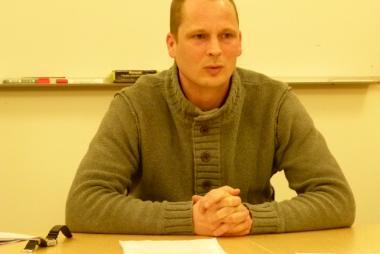
On 7 December, the PDJ Research Group received in Tromsø the Associate Professor in the Department of Philosophy at Bergen University, Jørgen Pedersen. Pedersen is currently editing an introductory book on political philosophy and history of political ideas called “ Political Theory from Plato to Arendt” (in Norwegian) to be publish by Pax Forlag. He presented to the group the main arguments of the book and an innovative interpretation on Machiavelli and Heidegger’s political thinking.
Four open lecturer positions at the Department
The Department of Philosophy at the University of Tromsø opened four new lecturer positions in November 2012.
More information about the open positions at: http://www.jobbnorge.no/job.aspx?jobid=87982
Contact: Jan Harald Alnes, tlf. 776 46485, e-mail: jan.harald.alnes@uit.noor Pål Bye Jensen, tlf. 776 44288, e-mail: pal.bye.jensen@uit.no.
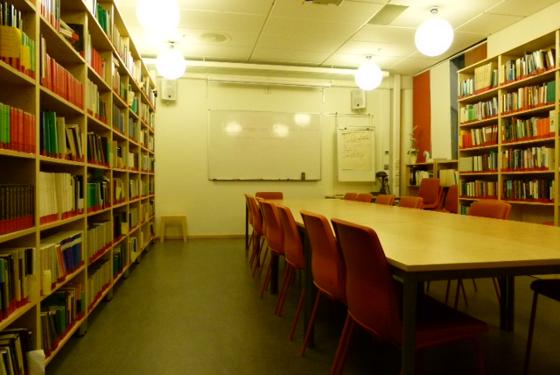
2012
Interview with Professor Seyla Benhabib
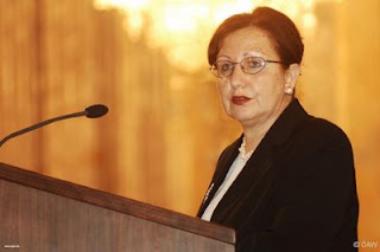
On 3rd of May Melina Duarte and Jonas Jakobsen from “Pluralism, Democracy, and Justice” interviewed Professor Seyla Benhabib in Copenhagen. We will certainly be much honored to publish the interview in English on the Norsk filosofisk tidsskrift, Norwegian Journal where we have in 2010 published an interview with Prof. Axel Honneth. Additionally, as we believe in the great importance to disseminate her thesis on cosmopolitanism and justice, the interview will also be translated to Portuguese to be published in Brazil.
More information about the publications will be soon here available.
*Seyla Benhabib is Eugene Meyer Professor of Political Science and Philosophy at Yale University. Her last book “Dignity in Adversity – Human Rights in Troubled Times” was published in 2011 by Polity Press.
**Picture from: http://habermas-rawls.blogspot.com/2009/05/conference-in-zurich-on-democratic-self.html
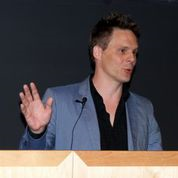

 The PDJ Research Group wishes to welcome and to congratulate the new post-doc researcher, Annamari Vitikainen. Annamari Vitikainen is a postdoctoral researcher in political philosophy at the Department of Philosophy, University of Tromsø. She defended her doctoral thesis “Limits of Liberal Multiculturalism” at the University of Helsinki 2013. Vitikainen has also worked as a research associate at the Institute of Philosophy, University of Bremen (2011-2012) and as a visiting scholar at the Centre for Applied Philosophy and Public Ethics, Australian National University (2008). Vitikainen’s research interests include liberalism, multiculturalism, theories of justice (incl. social, global, and gender justice), cosmopolitanism, nationalism, philosophy of law, and feminism. Recent publications include “Liberal Multiculturalism, Group Membership, and Distribution of Cultural Policies”, Ethnicities 9:1 (2009) and “Exit, Identity, and Membership”, in: Borchers and Vitikainen (eds.): On Exit: Interdisciplinary perspectives on the right of exit in liberal multicultural societies. Berlin and Boston: De Gruyter (2012).
The PDJ Research Group wishes to welcome and to congratulate the new post-doc researcher, Annamari Vitikainen. Annamari Vitikainen is a postdoctoral researcher in political philosophy at the Department of Philosophy, University of Tromsø. She defended her doctoral thesis “Limits of Liberal Multiculturalism” at the University of Helsinki 2013. Vitikainen has also worked as a research associate at the Institute of Philosophy, University of Bremen (2011-2012) and as a visiting scholar at the Centre for Applied Philosophy and Public Ethics, Australian National University (2008). Vitikainen’s research interests include liberalism, multiculturalism, theories of justice (incl. social, global, and gender justice), cosmopolitanism, nationalism, philosophy of law, and feminism. Recent publications include “Liberal Multiculturalism, Group Membership, and Distribution of Cultural Policies”, Ethnicities 9:1 (2009) and “Exit, Identity, and Membership”, in: Borchers and Vitikainen (eds.): On Exit: Interdisciplinary perspectives on the right of exit in liberal multicultural societies. Berlin and Boston: De Gruyter (2012).